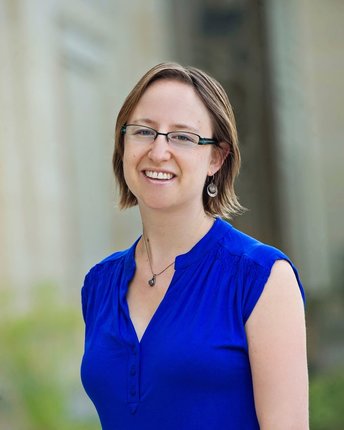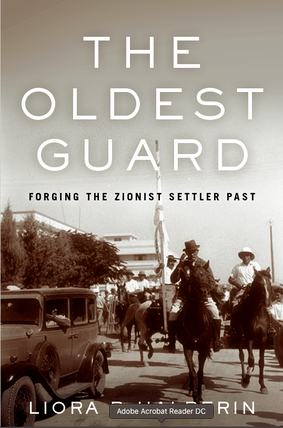Prof. Liora R. Halperin
Professor of International Studies and History
Distinguished Endowed Chair in Jewish Studies
University of Washington
Liora R. Halperin is Associate Professor of International Studies and History, and the Distinguished Endowed Chair in Jewish Studies at the University of Washington in Seattle.
Prof. Halperin's ongoing research focuses on Jewish cultural history and collective memory, Zionism and Zionist settlement, and the history of Ashkenazi, Sephardi, and Mizrahi (Eastern) Jews born in Ottoman Palestine prior to the formation of the Zionist movement.
Prof. Halperin's most recent book, The Oldest Guard: Forging the Zionist Settler Past (Stanford, 2021), is a history of local memory and the politics of commemoration in and around the Jewish agricultural colonies established in late nineteenth century Ottoman Palestine, known in Zionist historiography as the period of the "First Aliyah." Her first book, Babel in Zion: Jews, Nationalism and Language Diversity in Palestine, 1920-1948, was published by Yale University Press and was awarded the 2015 Shapiro Prize from the Association for Israel Studies for Best Book in Israel Studies.
She has also published a number of peer reviewed articles and book chapters in journals including Jewish Social Studies, the International Journal of Middle Eastern Studies, the Journal of Social History, and Ethnic and Racial Studies.
She teaches courses on the history of Israel/Palestine, Jewish History, and the Modern Middle East, as well as comparative courses on history and memory, diaspora, and urban studies.
She also is a frequent public speaker and consultant for universities, departments, and organizations navigating challenging institutional dynamics surrounding unfolding events in Israel/Palestine.
Prof. Halperin holds an A.B. (2005) in History and Near Eastern Languages and Civilizations from Harvard, and an M.A. (2007) and Ph.D. (2011) in Jewish History from UCLA
Prof. Halperin's ongoing research focuses on Jewish cultural history and collective memory, Zionism and Zionist settlement, and the history of Ashkenazi, Sephardi, and Mizrahi (Eastern) Jews born in Ottoman Palestine prior to the formation of the Zionist movement.
Prof. Halperin's most recent book, The Oldest Guard: Forging the Zionist Settler Past (Stanford, 2021), is a history of local memory and the politics of commemoration in and around the Jewish agricultural colonies established in late nineteenth century Ottoman Palestine, known in Zionist historiography as the period of the "First Aliyah." Her first book, Babel in Zion: Jews, Nationalism and Language Diversity in Palestine, 1920-1948, was published by Yale University Press and was awarded the 2015 Shapiro Prize from the Association for Israel Studies for Best Book in Israel Studies.
She has also published a number of peer reviewed articles and book chapters in journals including Jewish Social Studies, the International Journal of Middle Eastern Studies, the Journal of Social History, and Ethnic and Racial Studies.
She teaches courses on the history of Israel/Palestine, Jewish History, and the Modern Middle East, as well as comparative courses on history and memory, diaspora, and urban studies.
She also is a frequent public speaker and consultant for universities, departments, and organizations navigating challenging institutional dynamics surrounding unfolding events in Israel/Palestine.
Prof. Halperin holds an A.B. (2005) in History and Near Eastern Languages and Civilizations from Harvard, and an M.A. (2007) and Ph.D. (2011) in Jewish History from UCLA


